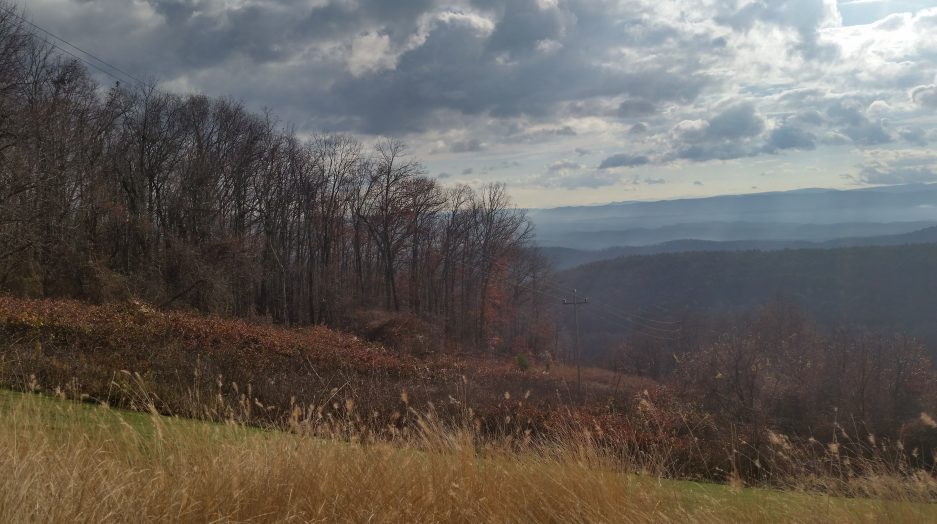God called Jonah to travel to Nineveh, and Job decided he had other plans. He didn’t want to go to Nineveh and warn the people that their city would be destroyed if they did not repent and turn from their evil ways. So, instead, he went as far as he could the other way. He boarded a ship headed for Tarshish, which is approximately 2,500 miles in the opposite direction of Nineveh. If it hadn’t been obvious to God before he boarded the ship, Jonah’s attempt to get as far away from Nineveh said it all. He refused to go.
After Jonah was swallowed by a whale and laid in its belly for three days, he had a change of heart. He repented of his foolishness and told God he would do what God asked of him. So Jonah went throughout the city warning the people of God’s coming judgment on them. And lo and behold. The people repented, and the king sent out a decree that everyone must mourn and turn from their evil ways.
Jonah was angry that they had actually listened to what he told them. He wanted them to suffer. He wanted them to pay for their sins. He was mad. And he went outside the city and sat under a shelter to see if God would really destroy them. But God taught Jonah a lesson. He caused a great plant to grow up quickly to shade Jonah from the heat, and Jonah was relieved. But God also sent a worm to destroy the plant, and the next morning the plant withered. This angered Jonah even further. But God told him that just as Jonah felt sorry about losing the plant, God also felt sorry for the people of Nineveh.
You can read this story in more detail in the book of Jonah.
What if God had treated Jonah the way Jonah wanted him to treat the people of Nineveh? Was living in the belly of a whale for three days something to laugh about? God punished Jonah, but he also saved his life when Jonah repented and promised to go to Nineveh. God gave Jonah a second chance to preach God’s message to a nation that hated Israel, so why wouldn’t God also give Nineveh a chance to repent? Jonah begged for mercy and forgiveness, so why didn’t he want the Ninevites to do the same? He wanted them to suffer and pay for their sins. He wanted retaliation for being an enemy of the nation of Israel.
And just perhaps Jonah was afraid for his reputation. If he warned Nineveh to repent or be destroyed and they survived, what kind of prophet was he? He wasn’t considering that God’s mercy for the Ninevites was greater than his prophecy not being fulfilled. After all. There was a condition to the prophecy. If they repented, they would be saved. If they didn’t repent, they would be destroyed. He wanted them destroyed. And he wanted to gloat about it.
Human anger does not produce the righteousness God desires. James 1:20
It’s easy for someone to speculate on the reason Jonah didn’t want to do what God wanted. But it sure is a great reminder to point the finger back at ourselves and ask why we don’t want to do the things God asks of us. Why do we fight God? Does the task he’s asking of us seem too hard? Will there not be enough fanfare and applause for us after the fact?
The question is. Do we have a legitimate reason to be angry with God when we only know a small part of his plan? What do we expect of God, anyway?
Why would Jonah not want the Ninevites to experience repentance and forgiveness? Why would he want them to suffer? It seems he didn’t love his neighbors as himself. After all, Nineveh was the capital of Assyria, and history tells us that Assyria was an enemy of Israel and Judah.
Jonah knew that if the Ninevites repented of their sins, the spotlight would then turn to the wickedness of his people. The Israelites had turned from God and were worshipping false idols. If God showed mercy to Israel and Judah’s enemies, would he be merciful to them, as well? Perhaps they wouldn’t even repent as Nineveh did.
What Jonah didn’t know was that God was storing up punishment for the Ninevites. Sure. They repented of their sins that day, but God would later punish them for their revenge on God’s chosen people. The Ninevites were an evil and extremely cruel nation. They would later be destroyed, but Jonah didn’t know that part of their future. God kept his full plans hidden from Jonah. We can’t expect to know all of God’s plans for ourselves or for anyone else. What we must remember is that nothing goes unnoticed by God. He will repay everyone for the good and bad they do.
The story of God’s punishment of Nineveh can be found in Isaiah 10 and the book of Nahum.
Perhaps we need to consider the difference in retribution and retaliation. Retribution is motivated by justice, while retaliation is driven by a desire for revenge. Jonah’s anger reflects a deep seated desire for revenge, and God acted in retribution when he later wiped out the Assyrians.
The story of Jonah and the Ninevites is an example of God’s justice and mercy. We should pay for our sins, but the death of Jesus Christ on the cross paid the ultimate price for our sins. We still have to live with the consequences of our sins, but our sinful slate is wiped clean with the forgiveness that only comes from God our Father. Let’s let God decide who to punish and how to dole it out. Let’s not take matters into our own hands, but trust that God can and will do his job very thoroughly in his own time.

